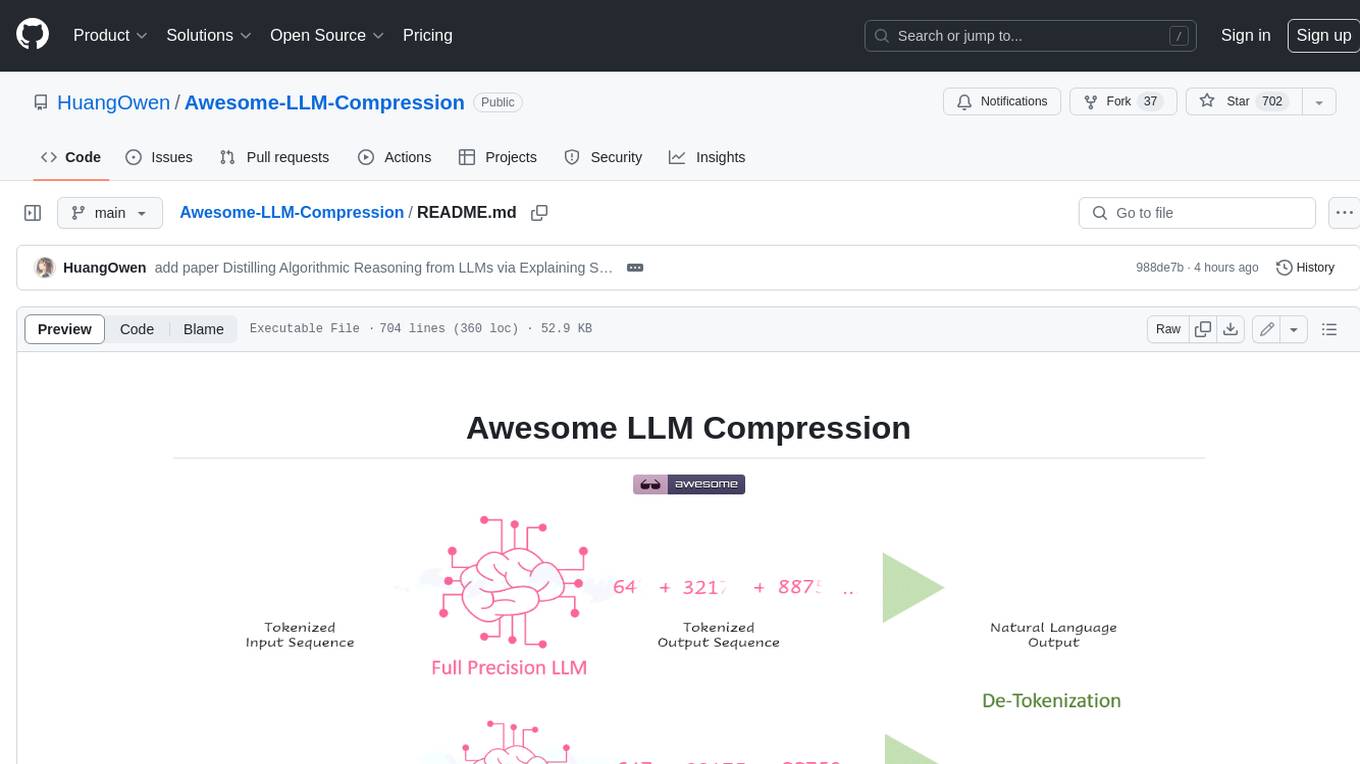Best AI tools for< Quantize Llm >
0 - AI tool Sites
No tools available
1 - Open Source AI Tools

Awesome-LLM-Compression
Awesome LLM compression research papers and tools to accelerate LLM training and inference.
github
: 1.4k
0 - OpenAI Gpts
No tools available